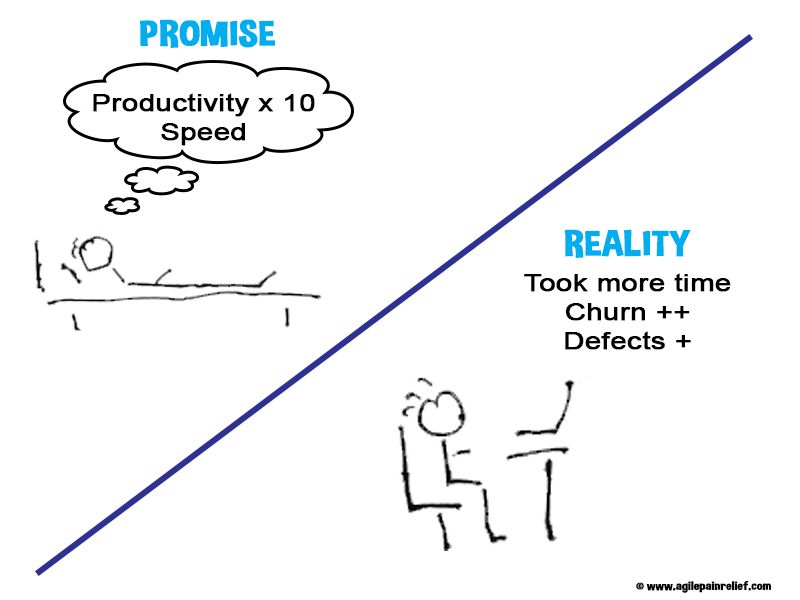Agile Outside of Software
In the over 20 years since the Agile Manifesto was written, we’ve seen Agile approaches applied in a large variety of fields outside of software development. Scrum has been used for sales, marketing, manufacturing, human resources, gas plant design and construction, academic research, schools… the list goes on.
Agile approaches lend themselves well to circumstances where:
- we have cross-functional teams,
- people are doing knowledge work (i.e. their work requires thinking, rather doing routine repetitive tasks),
- adapting to change helps as opposed to just following a plan,
- there is a common goal or purpose, often called a Product Vision,
- collaboration would help the team.
In many of these examples, the groups don’t use Scrum itself, rather they invent their own flavour of Agile that works for them. Things that come up time and time again include:
- work in small chunks,
- start with a rough plan and assume it will change often,
- regularly examine what has been built and change the plan based on feedback,
- give control of the work to the team,
- make team improvement a core part of the work,
- make improving communication and collaboration a regular part of the work.
Agile Pain Relief Blog Entries
Resource Links
Interesting ways that Scrum and Agile have been used
- Agile for non-software teams: A summary
- Building The Empire State Building – The Tyranny of the Plan – Mary Poppendieck
- Designing gas plants with Scrum
- Developing a Solar Car with Scrum
- FloraHolland uses Scrum to manage business change
- GE Builds Engines using Scrum
- How HR Can Become Agile and Why It Needs To
- How to use agile in manufacturing
- Kanban in architecture
- Kanban for Lawyers and Part 2: A Retrospective
- Lean in the Lawfirm
- NPR Uses Agile for program planning i.e. radio programs, not software
- Introducing ScrumAdemia: An Agile Guide for Doctoral Research
- The Workplace As An Experience: Three New HR Roles Emerge
- What We’ve Learned by Scrumming Sales and Support Teams
- You’ll Never Work Alone
ACADEMIC RESEARCH
- Adapting Scrum to Managing a Research Group
- Adapting the scrum framework for agile project management in science: case study of a distributed research initiative
- Introducing ScrumAdemia: An Agile Guide for Doctoral Research
HOME AND FAMILY
INFRASTRUCTURE AND OPERATIONS
Related Books
- Agile HR: Deliver Value in a Changing World of Work
- Natal Dank, Riina Hellström - Agile for Non-Software Teams - Gil Broza - excellent solid work - Building a House in the Garden - Agile lesson from constructing a house - Yves Hanoulle - this is a completely different angle. His first two books are about office work, this book is about how Yves learned from Agile in building a passive house. Caveat: I have access to draft notes the author isn’t ready to publish yet, and is taking note of emails to get a sense of its time to publish. - Hacking Marketing: Agile Practices to Make Marketing Smarter, Faster, and More Innovative – Scott Brinker - Office Lean
- Ken Eakin - expensive, however it is also excellent
